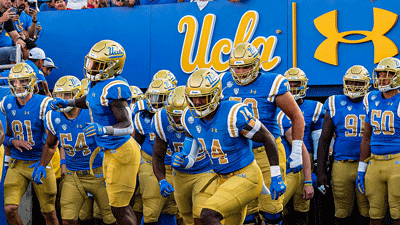Will the Pac-12 Stand Alone?

It appears that the Big 10 is ready to start playing football. The target date, according to big10.org, will be October 23-24.
The Big 10 is taking massive safety measures to protect their players, coaches, and other staff.
Before each practice, all individuals participating in the session will be required to undergo daily antigen testing.
According to big10.org: test results must be completed and recorded before each practice or game. Student-athletes who test positive for the coronavirus through point of contact (POC) daily testing would require a polymerase chain reaction (PCR) test to confirm the result of the POC test.
Yes, there will be football in the great Midwest. The pressure put on by Big 10 players, their parents, and coaches helped get the Conference to this point. It also helps that more knowledge about the virus, safety measures, and testing is much easier to do and much more available.
While this is good news for America’s heartland, but what about the western United States where only BYU is playing college football?
Jon Wilner of the San Jose Mercury News makes a strong case in a piece that was released September 16, 2020, that the Pac-12 has to follow suit and get in a season.
It could be a disaster if the Conference decided to sit the season out. The Pac-12 already doesn’t get the respect that it deserves with the national media.
While there is a case for the lack of respect recently, it has been a long time since Pete Carroll and USC were winning national championships or Oregon with Chip Kelly at the helm competing for national championships.
Many of the region’s best players opt to travel to ACC, Big 10, Big 12, and SEC country to attend school and play their college football.
If the Pac-12 is the only Conference not to play, it is hard to predict the damage to its already tarnished image.
USC, represented by their quarterback, Kedon Slovis, posted a letter to California Governor, Gavin Newsome to allow the California schools to play.
Which brings us to another hurdle to overcome, health officials in the states of California and Oregon, at this point, are preventing their school’s players from gathering in large numbers.
Oregon Governor Kate Brown has said her state will not let the schools in her jurisdiction be at a competitive disadvantage, so it appears that the Oregon schools will be able to compete once the Pac-12 gives the go-ahead.
That leaves the ball in the state of California’s court. Something not lost on Slovis and his supporters.
The question begs to be asked if you follow the science, why is the science different is every other part of the country other than the western states?
If you want to narrow down the science question even further, why is science different in California and Oregon?
These questions need to be answered.
Further complicating matters out west have been the wildfires that are raging up and down the west coast, making the air unhealthful on every Pac-12 campus except the Bay Area schools where the air quality is good, and Salt Lake City, where the air quality is moderate.
The fires, hopefully, will only be a temporary setback, but time is of the essence for the Conference. If the Pac-12 is going to stay competitive with the rest of the Power Five schools, then they have to get ready and operational in a hurry. Otherwise, if they go it alone and not start the season roughly at the same time as the Big 10, the Pac-12, more than likely, will not be included in the college football playoff.
Health should be of the utmost importance, and if any player feels his health is being jeopardized by playing, then the athlete should be able to opt-out of the season with no repercussions.
There aren’t any easy answers. With information on COVID-19, changing at a dizzying pace makes that much more confusing. We live in strange and severe times.
Is this a cross the Rubicon moment for the Pac-12?
Will the Conference cross the Rubicon, or will it stay pat? And what will the consequences be for either decision?
The future awaits.